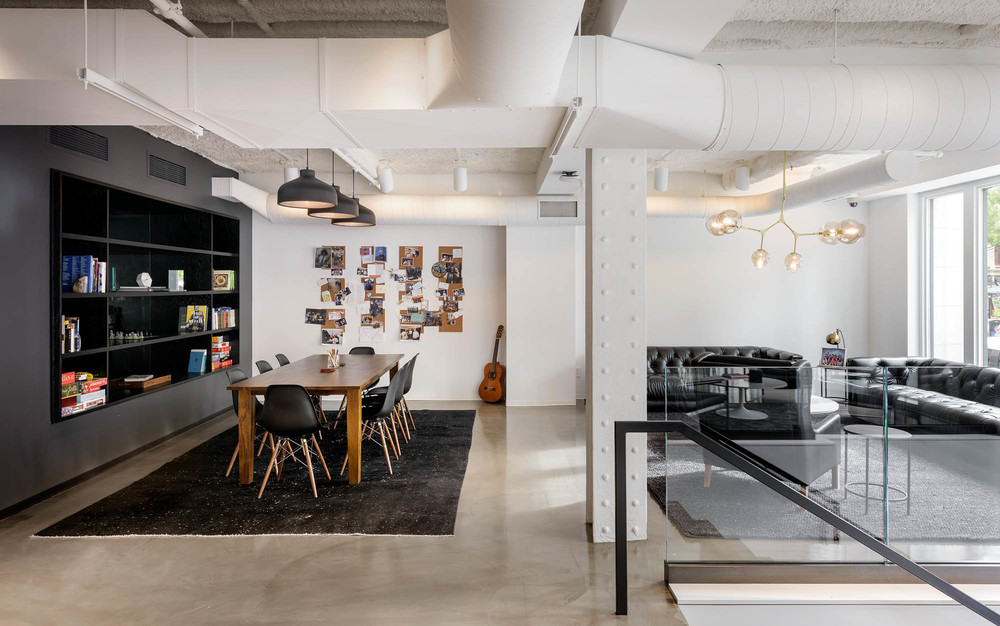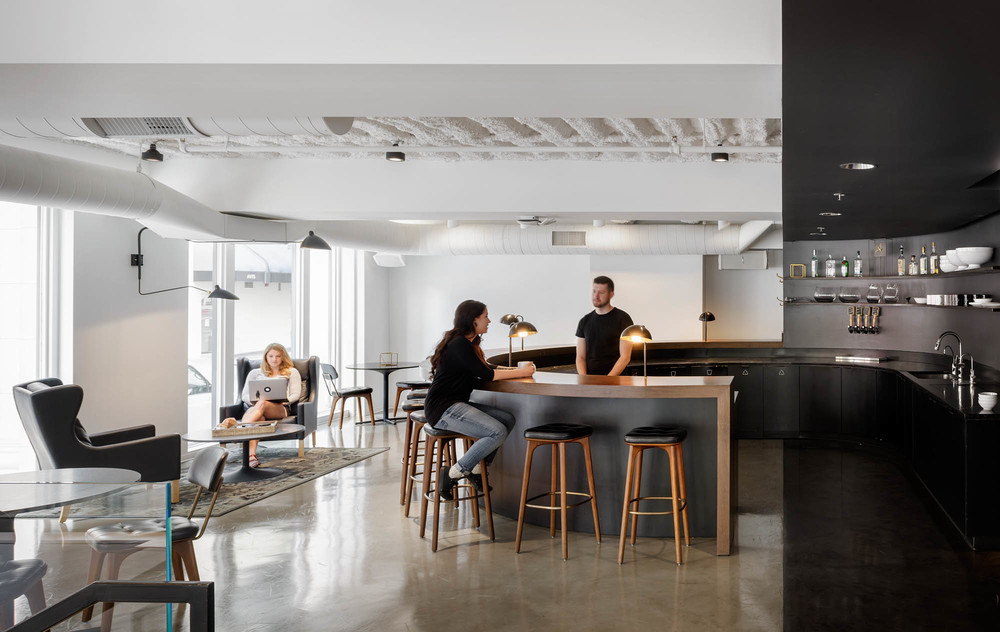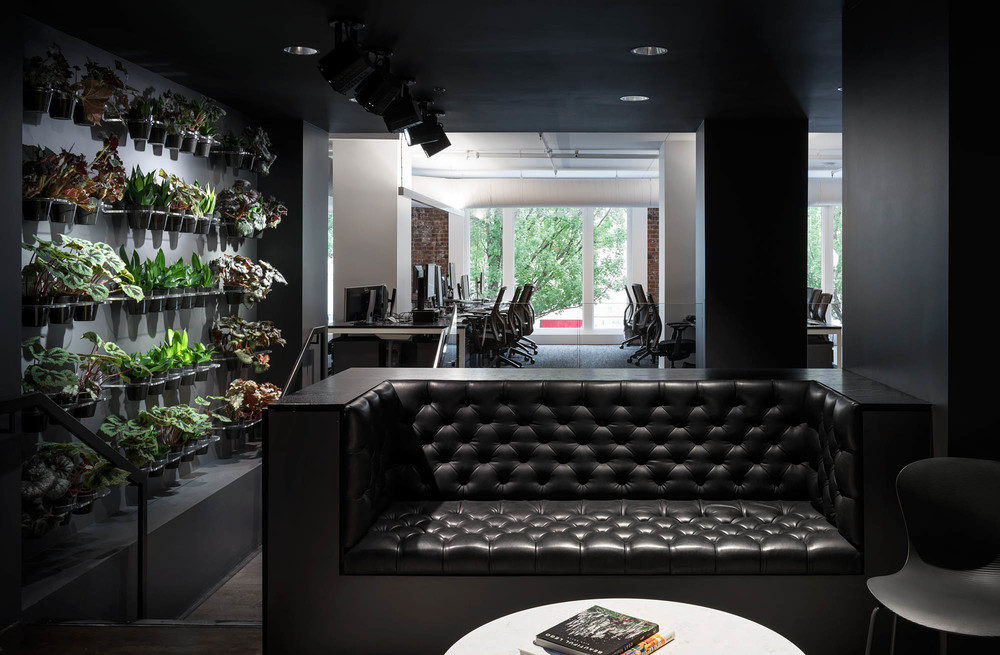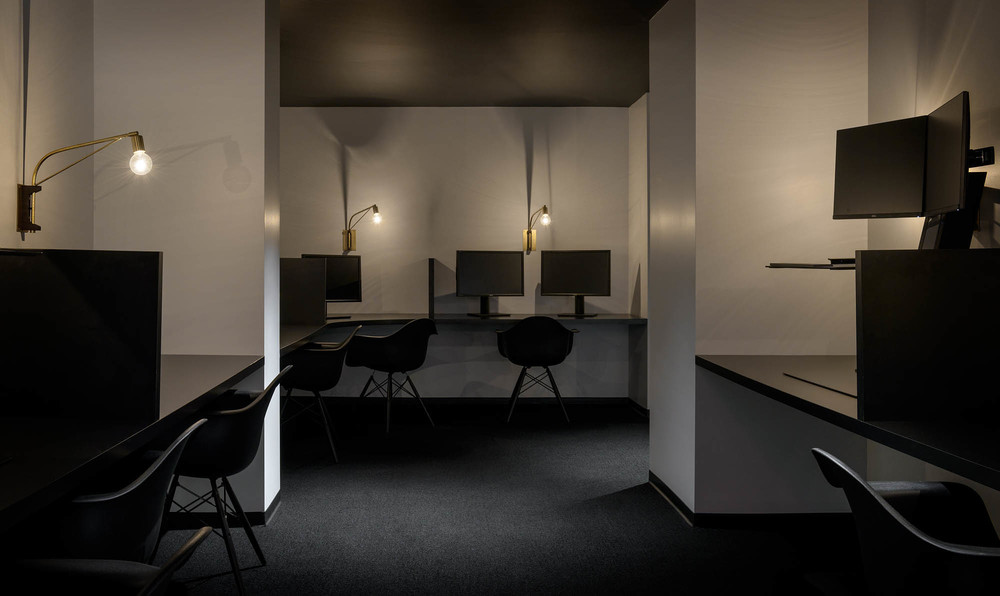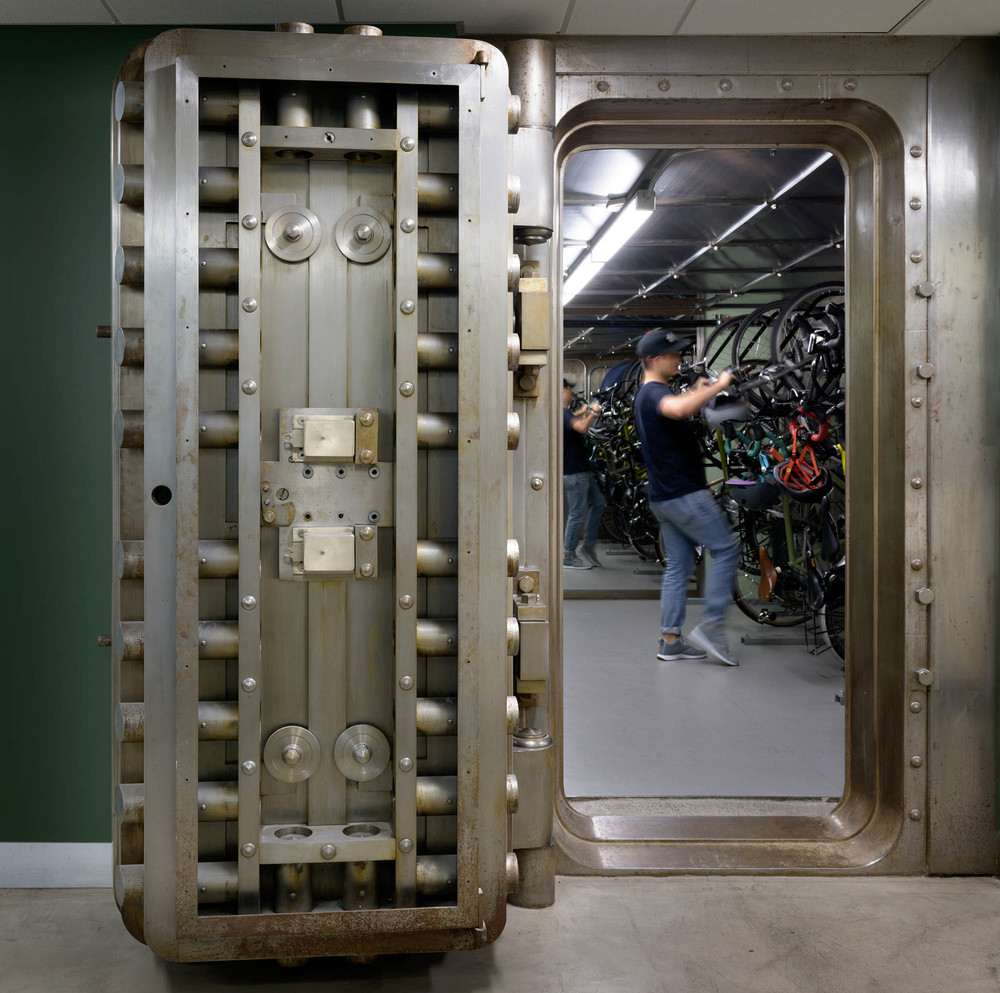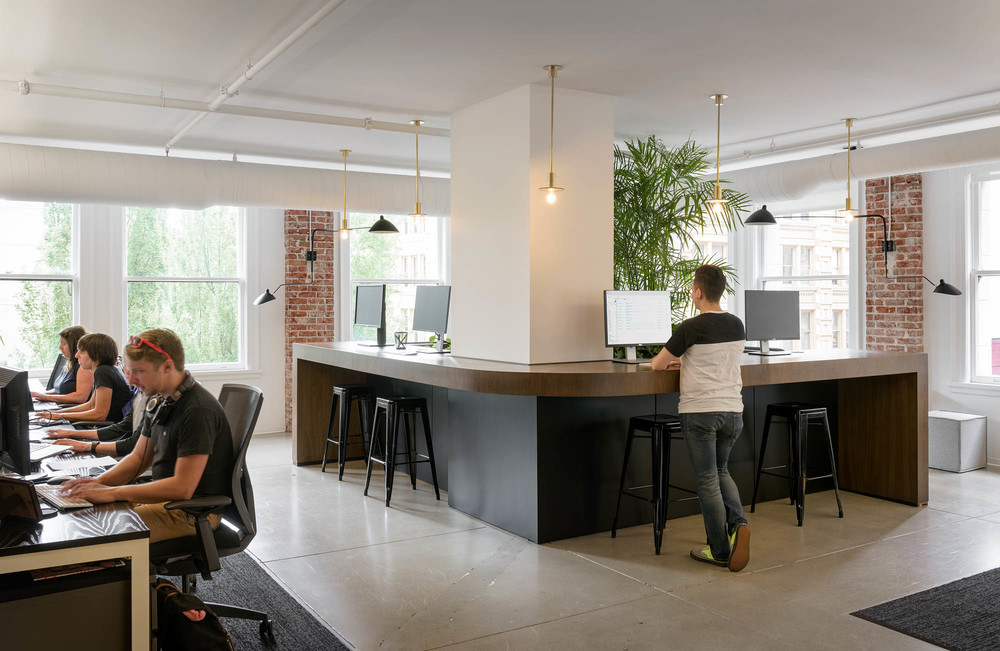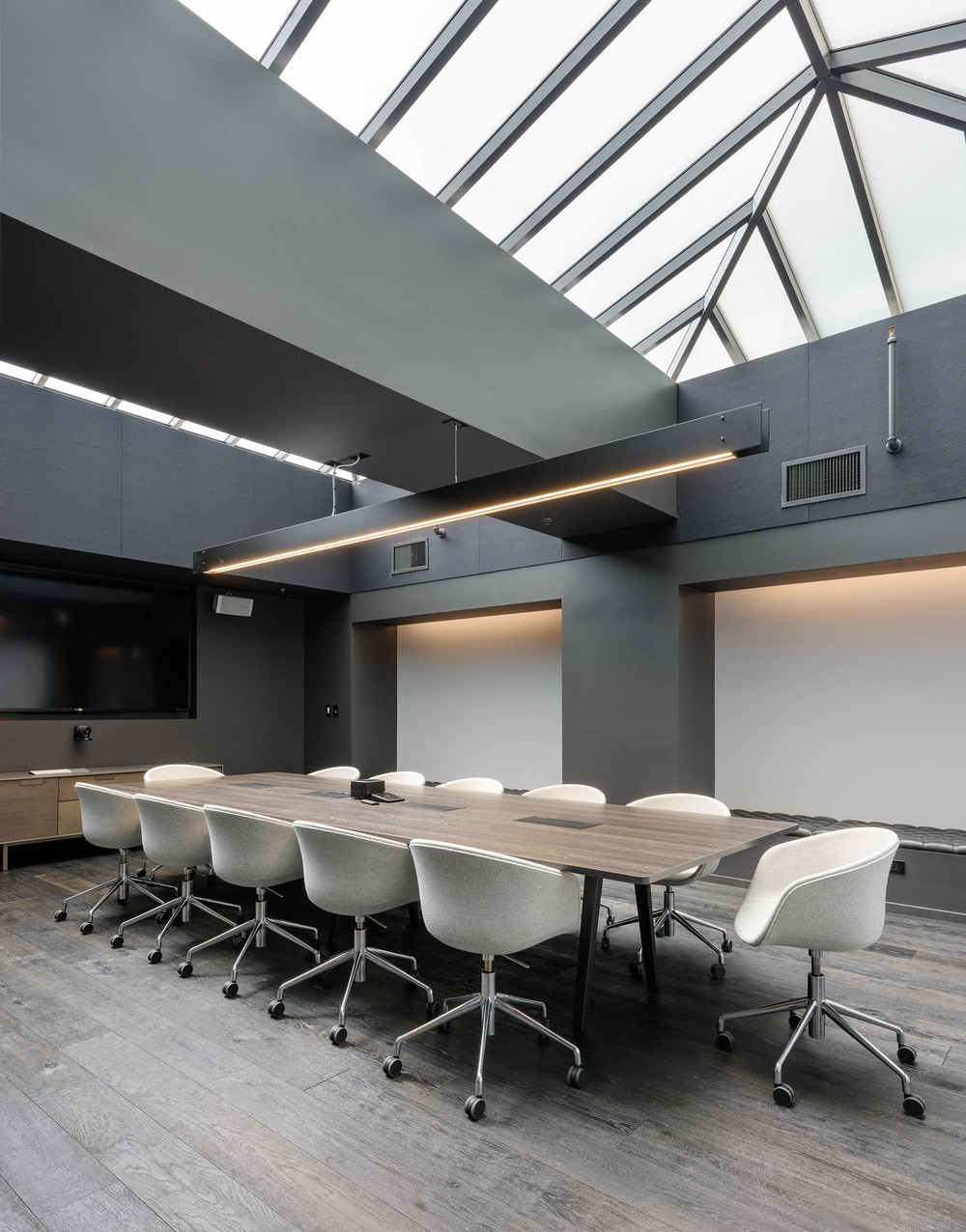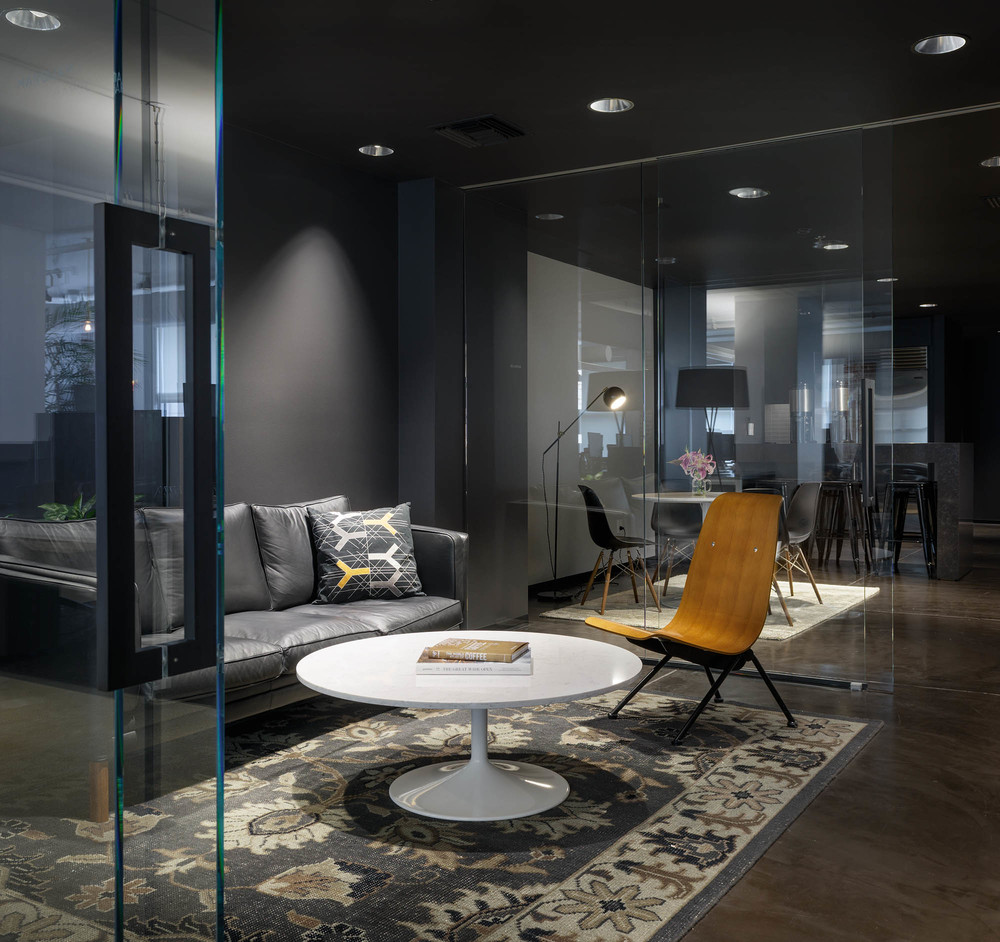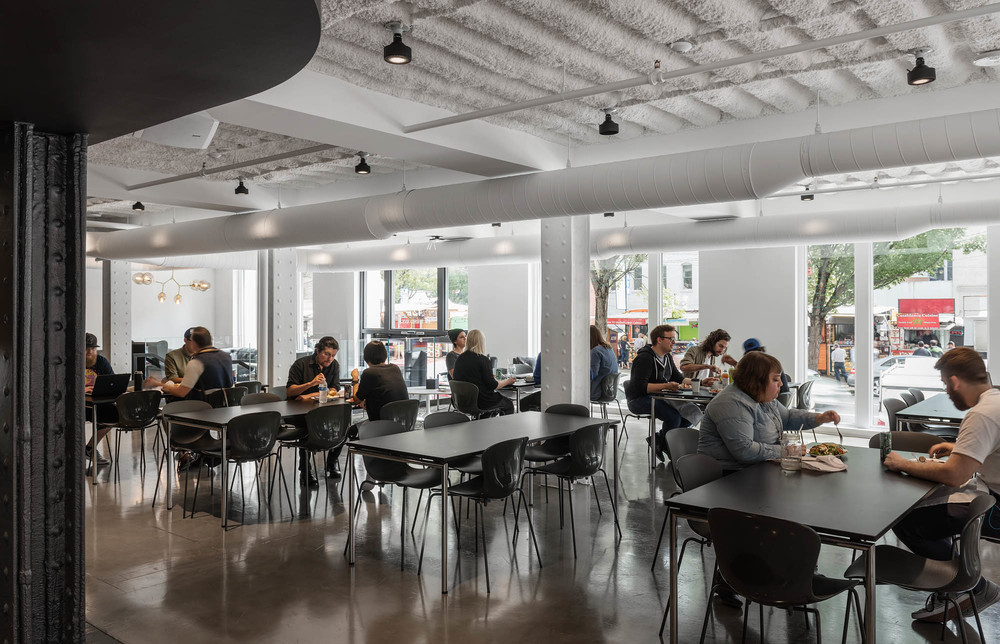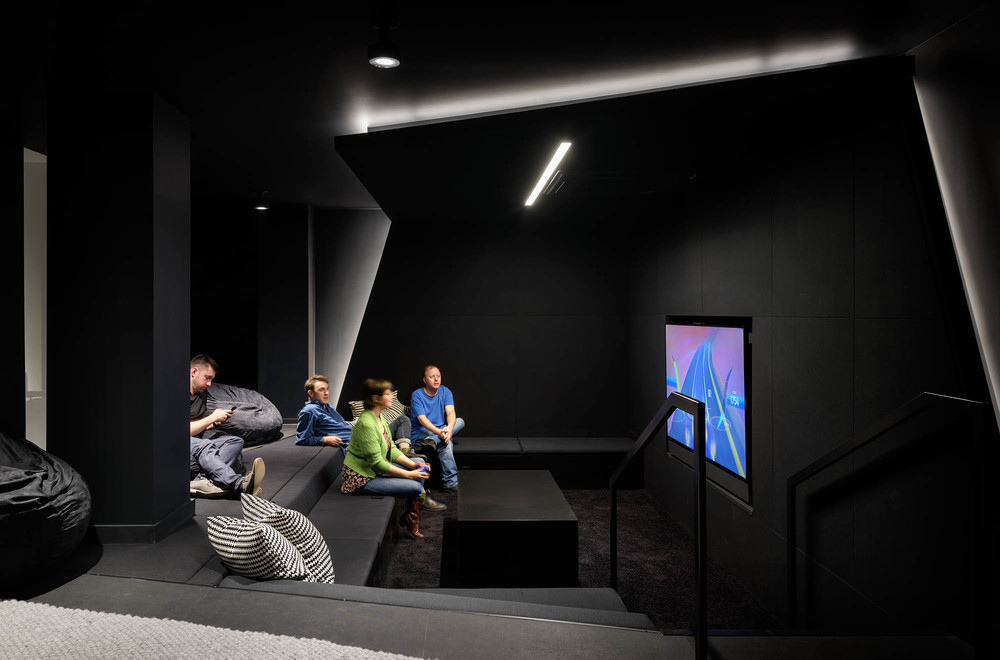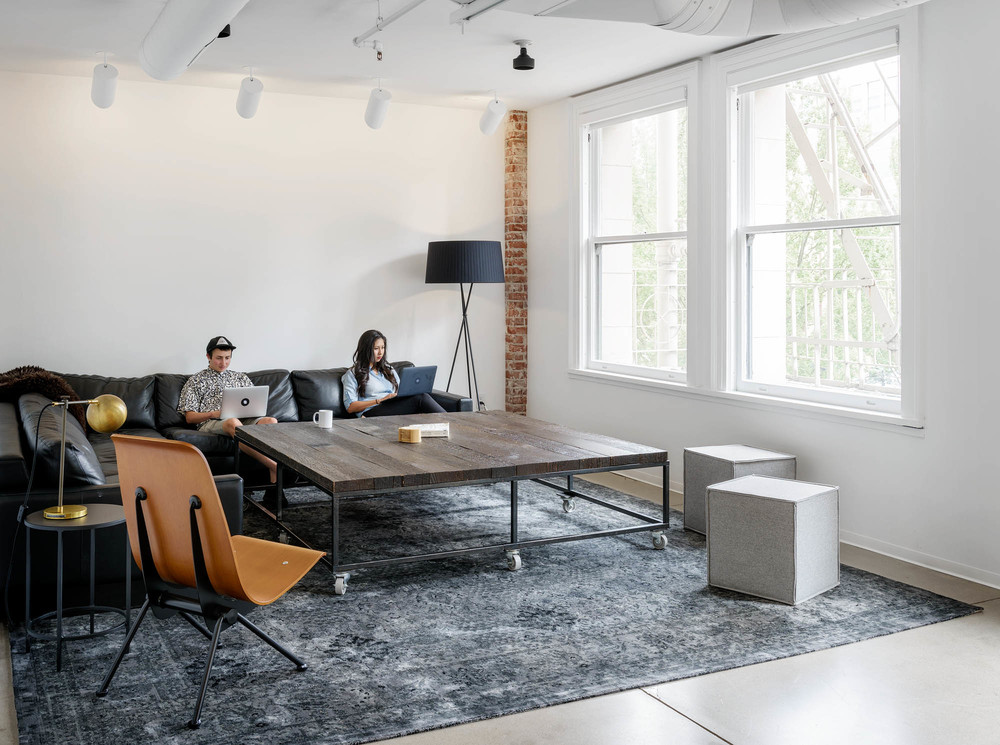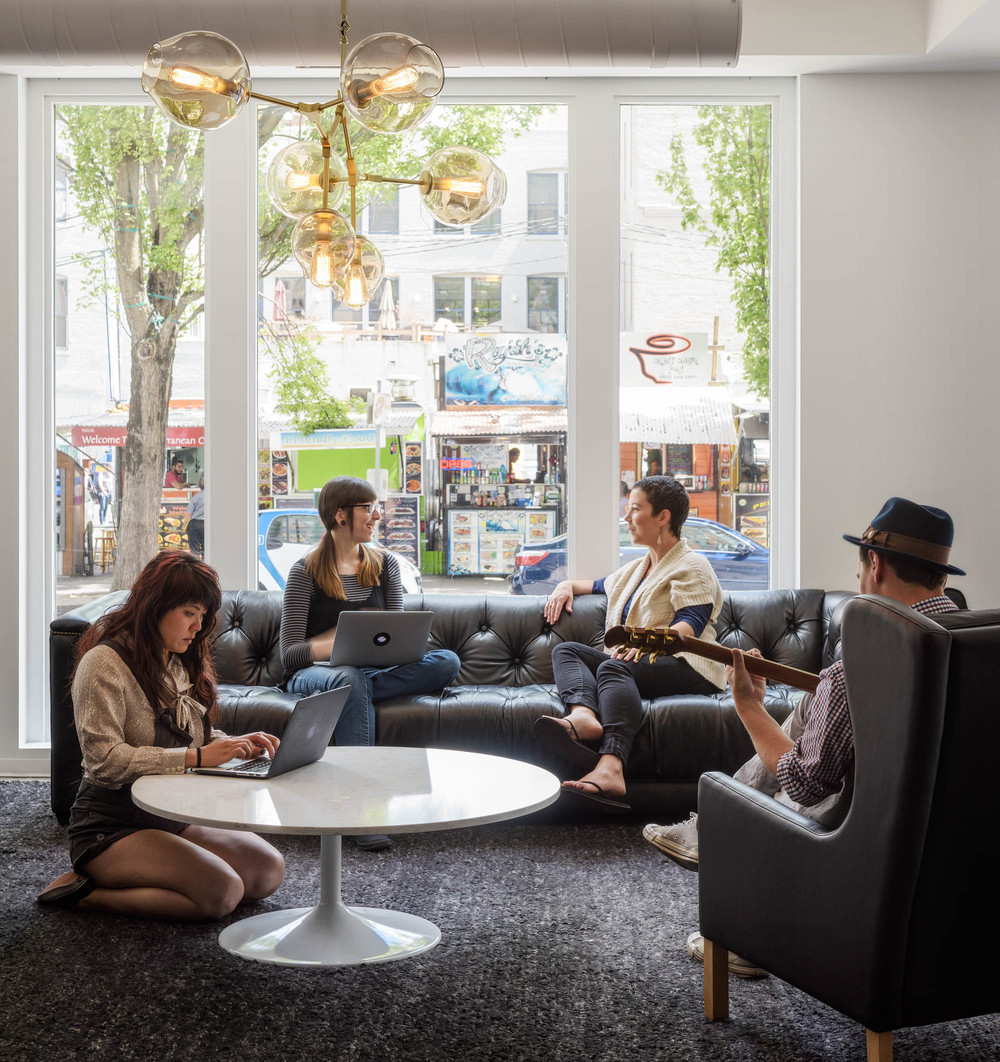On a couch in the corner, someone is softly noodling on an electric guitar. Others are milling around a circular kitchen, serving themselves grill tri tip and chilled cedar plank salmon, pulling bottles of Brew Dr. Kombucha from the fridge.
New York website builder Squarespace opened its Portland customer service outpost more than two years ago. Earlier this spring it moved from temporary quarters in Old Town to an upscale office in the newly remodeled, 105-year-old Spalding Building.
The new office, most recently home to a Sleep Country USA store, initially housed the Ladd & Tilton Bank and a string of successors. Now, 149 Squarespace employees work on three remodeled floors helping clients build and maintain their websites. Old bank vaults house bike storage and a game room. Employees conduct customer chats while lounging in cushy chairs.
And each day they get a gourmet lunch.
Anthony Casalena
"We compete with Google and Facebook and Amazon in terms of established companies. We compete with the best startups there are in terms of talent," says Squarespace founder and chief executive Anthony Casalena. "Amenities, now we've got to be at a level where those guys are, too."
Privately held Squarespace has raised nearly $80 million in venture investment and claims more than 1 million paying customers. Portland is one of its three offices (its others are in New York and in Ireland), and Squarespace is one of several well-known tech companies with customer service outposts in Oregon.
Visiting the new Portland office for the first time this month, Casalena – dressed in black, sipping coffee from a black cup – sat down with The Oregonian for a brief chat on his business, the Portland office's minimalist design, and the future of the internet.
Tech offices all have a look. What are you trying to convey?
When you are building you are thinking about other iconic tech companies' offices and the values you're trying to instill. Google has a particular kind of vibe – it's more playful in nature. Facebook has this work-in-progress, unfinished feel. Those are very particular to their cultures, to the kinds of cultures they want to have.
One of Squarespace's values from day one is that design is important, design matters, it helps elevate ideas. Aesthetics matter. We just really feel it through and through from the product we create to the office we're sitting in.
This is your first day looking at the space. What stands out to you about it? I look at this conference room we're sitting in – it's all black except for the chairs. The floor's black. The table is a black finish on wood. The floor's black. There's a whiteboard behind us.
As part of one architectural process we did this space, New York and Dublin at the same time.
We worked with an architect, A+I in New York to do these spaces. Their first take on what to do is Squarespace, it's all black and white (like the company's logo), let's do everything in black and white. One of the first iterations...they came up with these ideas that felt sterile, or laboratory, in their nature.
One of the things I hope you'd get from this office is it's supposed to actually feel warm and rich. We spend so much of our lives in the spaces (where) we work, or at least I do, it was very important to me to keep a sense of minimalism and simplicity but also keep warmth. Very few surfaces should actually be just a flat color. This (desk) is a wood texture, that's a wood texture (the conference room has a hardwood floor), this is the white board we're stuck with. That (he indicates a cushioned leather bench) is kind of tufted.
Lighting's really important. You're trying to create a residential feel without destroying the functionality of an office.
Why has Portland worked for you? Why has it continued to develop?
The initial strategy for where to place the office is a combo of time zone coverage for customer operations as well as: Where can we get the right level of talent while still being in a place that feels native to our brand.
We were just attracted to the vibe of Portland and the opportunity considering that the other parameters fit.
How is your business evolving? You started it in 2004, in your dorm room?
It's ancient. It's half as old as the web, which is kind of weird to think about. It's evolved a lot. The scope of your ambition can change dramatically going from just me in my dorm room up to 560, 570 people, which is where we're at right now.
The business has gone from me trying to create a website, for just myself, not even realizing it's going to be a business, to really a multi-industry product. We've got over a million paid customers on that platform and it's growing very nicely.
In addition, the stuff we've recently been getting into is saying: What things, because we've got the position we're in, can we also affect? A lot of people want to sell online. What can we do for ecommerce? People want to keep in touch with their customers. How can we facilitate that?
People obviously need a domain when they create an online presence of any kind. Can we make that an awesome experience and actually invest resources in making that great as opposed to just being an incumbent player that's been in the domain space forever that everyone kind of begrudgingly uses.
There's a lot of people who were around in the beginning of the internet and there are some pretty big businesses that were built there that didn't kind of modernize and keep the level of technological investment that a smaller upstart like us or some of our competitors would do.
The message of Squarespace – this message of aesthetics matters, design matters, style matters – part of that is getting all the details right. That is what good design is all about. Part of that is also getting small businesses to understand: You compete by telling your story.
I walked down the street to Barista, this (Portland-based) coffee place. The way that brand is presenting itself – it caused me to go in. Why did it cause me to go in? It's not because it was the cheapest. There's a kind of vibe and a story you tell, and that's what small businesses do to compete. You don't compete with Amazon in shipping and pricing. It's crazy.
It's just very natural for us to continue with those core values but apply them to many, many industries.
Are you at capacity here?
We're pretty close. I think we have 29 seats (left).
You're hiring people with some aesthetic sensibility. How do you assess that?
We'd like a creative spirit within people, if possible, and we'd like people to be able to appreciate the value that we provide people with what we do with aesthetics. I wouldn't say we're trying to figure out if your aesthetic taste matches ours during an interview. It's more about a vibe.
I would put the key things that we look for on a more functional level. We look for people who are great question askers, who are really good thinkers, who have a creative spark, who are humble. Outside of a designer role we're not hammering you on any of those other things.
Any chance that any of the engineering would migrate over here? It's currently concentrated in New York.
I'd want to get to a spot where if we were going to put an engineering team somewhere (else) we could put a serious project in one location. Have a couple satellite engineers in a spot like this, it becomes tough. Communication becomes really tough, because so much of it happens locally.
That being said, we do have one designer-engineer (and) one designer who are out here from the New York office because they got started in New York and the lifestyle out here really matches what they wanted for their families. We can use the office to accommodate things like that but we don't do the primary hiring out of here.
In the next year, what do you want to accomplish?
We've got a core business around websites and that's great but there's so many (opportunities) in domains or newsletters or commerce. I don't want to give away too many. We have in some cases tens of thousands of customers that could use any one of these things that I just rattled off. We think those things are better together than apart.
We're excited to prove out that those businesses are viable within our company and really come more than just websites. That said, even with the core website product we want to keep evolving it. We've got some ideas about where the web is going.
Additionally, we're just in the beginning of our internationalization story. We launched euros on July 5. It's the first time we've done anything truly international. Multiple currencies will follow. Multiple languages will follow. We've got a lot of work to do in other markets to make Squarespace more widely known.
You said a moment ago you've got some ideas about where the web is heading. Where is it heading? What's changing?
Mobile consumption is as important as ever. From the beginning of Squarespace, we knew that was going to be important and we developed the current product in a post-iPhone era. We made the sites work really, really well on mobile devices. That's important.
Sharing is going to remain important. Loading speed is going to remain important. And visually, on a desktop experience, we're not at the end of what we could be doing in terms of making the most beautiful sites accessible to everybody.
In my field, we feel quite acutely the migration of everything onto Mark Zuckerberg's platform. Do your clients feel that? Do you feel pressure from people saying, I'll just have a Facebook page?
I think for very small ideas you might be able to get away with that, but we have not seen anybody point their domain to Facebook and be OK with relinquishing all control over their content and their audience. If you've only invested in getting followers on your Facebook page and then Facebook wakes up, which they did and says: We're going to change the amount it costs to contact those (followers), you really are locked in.
It's our view that being on Facebook is very important. Sharing content on Facebook is very important. But there's still a place for your home base as a brand, and that should be a place you completely control.




